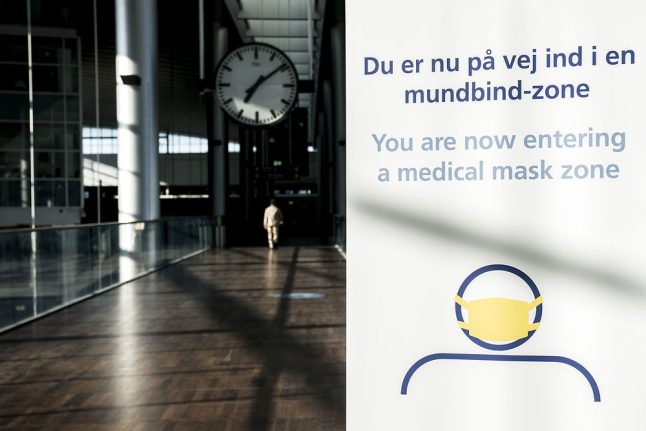New recommendations from the Danish Health Authority (Sundhedsstyrelsen), published Friday, advise the use of face masks in the country in certain circumstances, including when travelling home from areas considered high-risk or on the way to being tested for coronavirus.
As of Friday, the authority recommends using face masks in certain special situations, bringing the policy in Denmark closer to that of other European countries such as France and Germany.
According to its new advice to those who have tested positive, those in close contact with someone who has tested positive, and those with symptoms, the authority recommends people use face masks if they are forced to leave self-isolation.
“Use a face mask if you break self-isolation to go out to take a test,” the health authority states, linking to a guide for correctly using masks.
READ ALSO: Danish health agency drops opposition to face masks
Face masks have a relatively rare sight in public areas in Denmark throughout the coronavirus epidemic in the country, although they have been mandatory within the country's airports since June 15th.
But there is evidence that will change as a result of the new recommendations.
“Friday was the single day for which we had the highest face mask sales. We sold around 8,000,” said Klaus Fridorf, head of communications with health and beauty retail chain Matas.
Matas stores have sold around 5,000-7,000 face masks per week since the coronavirus came to Denmark, although sales have begun to increase as the school summer holiday approaches.
The week of June 22nd-28th saw around 25,000 face masks sold by Matas, either in its physical stores or online. That total increased to 41,500 two weeks later, news agency Ritzau reports.
Salling Group, which owns the Netto, Bilka and Føtex supermarket chains in Denmark, told Ritzau that “more and more” face masks had been sold in recent weeks but declined to release sales figures.
Denmark currently has 18 people hospitalised with coronavirus throughout the country, according to the latest figures from national infectious disease institute SSI. Six of the 18 are receiving treatment in an intensive care unit.
A total of 13,037 positive tests for coronavirus have been recorded since the pandemic reached Denmark in February this year. Over 1.2 million tests have been carried out.
In the three days prior to the release of Monday’s updated figures, 91 tests for coronavirus came back positive.
Denmark has recorded 610 deaths with coronavirus at the time of writing.



 Please whitelist us to continue reading.
Please whitelist us to continue reading.
Member comments